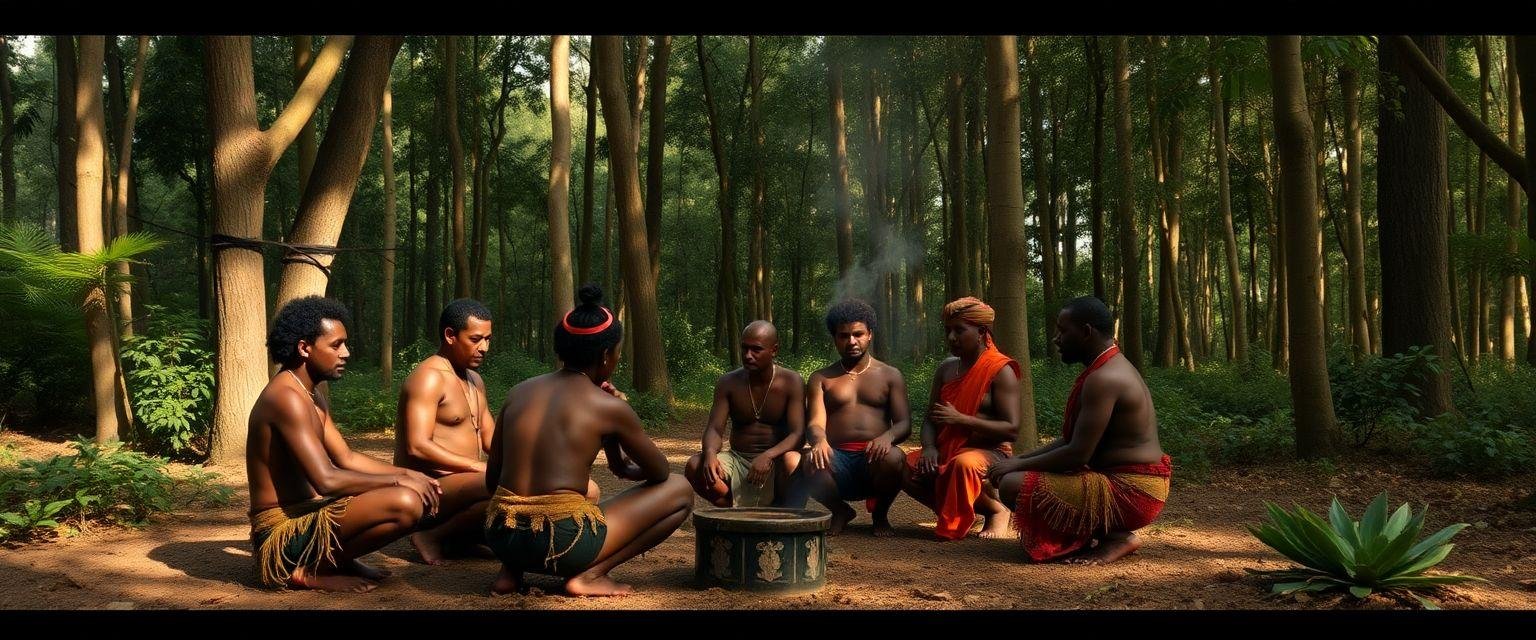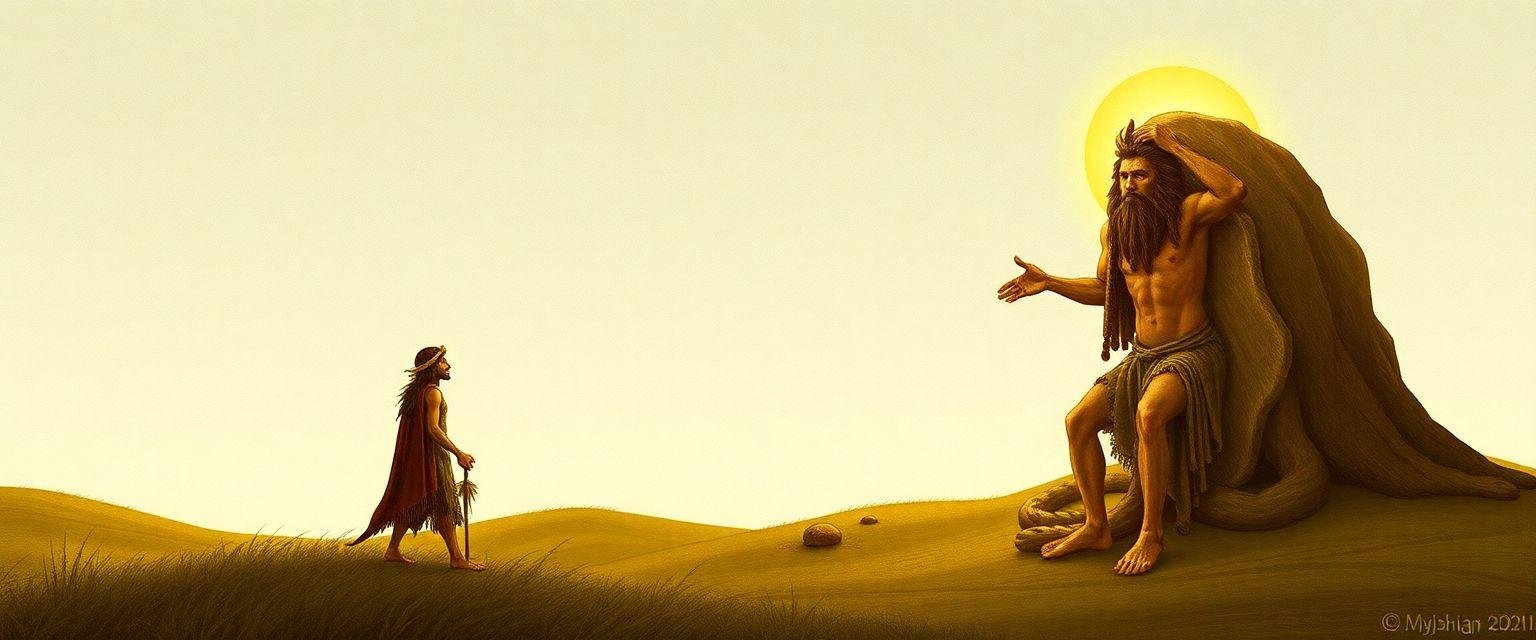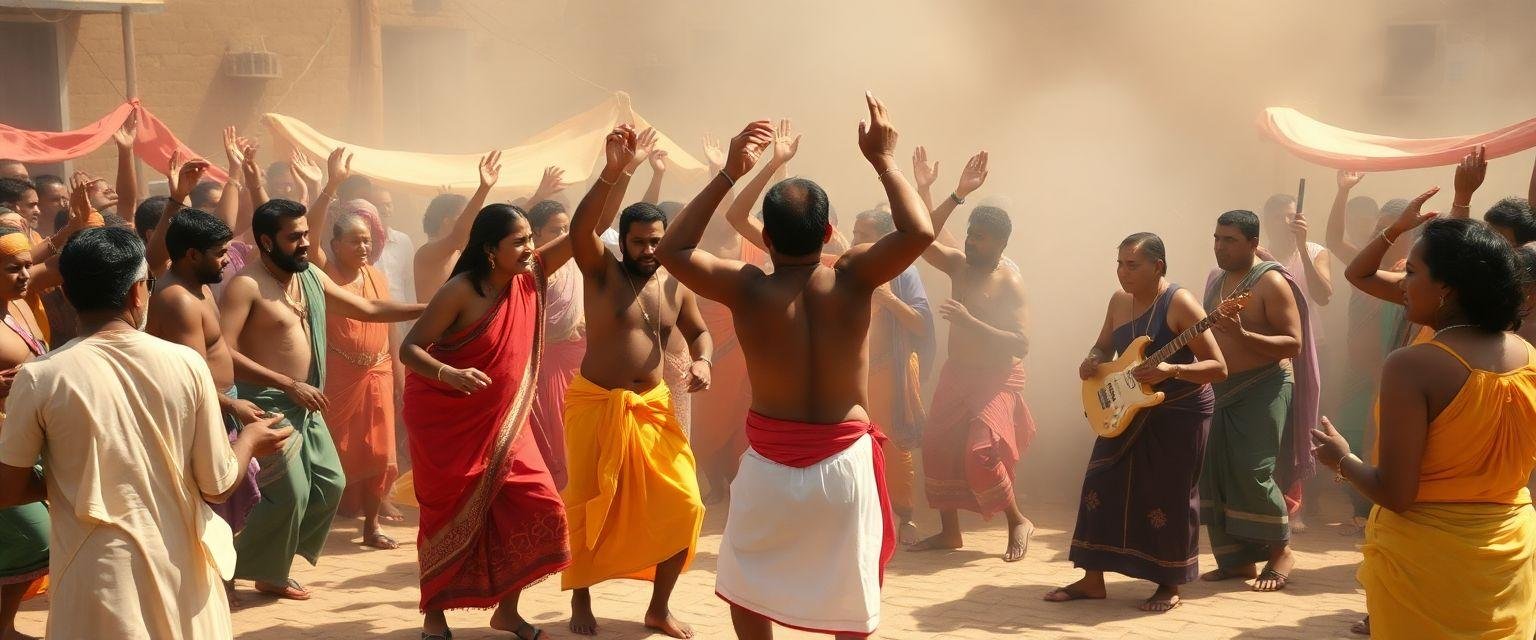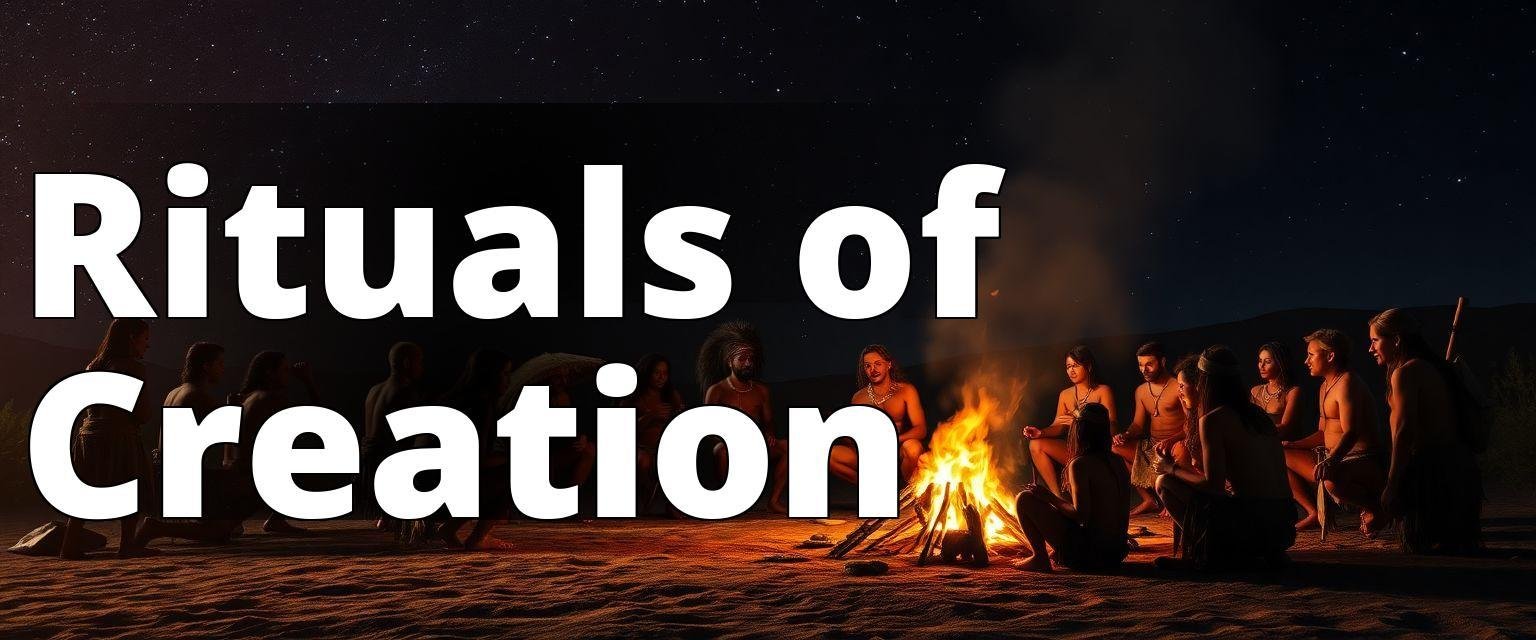Primitive Religion
What is Primitive Religion?
Have you ever wondered if our ancestors, living in the depths of untouched forests or expansive deserts, pondered the same existential questions we do today? Primitive religion, often misconceived as mere superstition, is a profound tapestry of beliefs that has shaped human history and spirituality. It is rooted in the intimate bond between humans and their natural surroundings, and its relevance continues to echo in modern religious practices. This article will explore the characteristics, types, and beliefs that form the core of primitive religions, offering insights into their practices and significance.
Primitive religion represents the earliest form of religious expression. It is not defined by a singular doctrine but rather by its varied and rich traditions. Often practiced by tribal societies, these religions are deeply intertwined with nature, emphasizing a connection to the earth and the cosmos. Unlike organized religions with established texts and doctrines, primitive religions are fluid, passed down through oral traditions and rituals. They offer a unique perspective on spirituality, one that is both ancient and remarkably relevant in today’s world.

Characteristics of Primitive Religion
To truly grasp the essence of primitive religion, one must first understand its defining characteristics. These religions are often animistic, viewing the world as being inhabited by spirits. Every mountain, tree, and river is seen as alive and possessing a soul. This belief fosters a deep respect and reverence for the natural world.
Moreover, primitive religions are typically polytheistic, worshiping multiple deities often associated with natural elements. This contrasts sharply with the monotheistic religions that dominate much of the modern world. The gods of primitive religions are not distant and omnipotent but rather accessible and deeply involved in the daily lives of their followers.
Insider Tip: Anthropologist E.E. Evans-Pritchard noted that the Azande people of Central Africa believe in witchcraft as a cause of misfortune. This belief system is a part of their primitive religion, illustrating how the supernatural is integrated into everyday life.

Types of Primitive Religion
Primitive religions can be categorized into several types, each with unique practices and beliefs. Totemism, for example, is a type where a clan or tribe adopts a totem, usually an animal or plant, that holds spiritual significance. The totem is revered and often considered an ancestor or guardian spirit.
Shamanism is another prevalent form, characterized by the presence of shamans or spiritual leaders who mediate between the human and spirit worlds. Shamans are believed to possess the ability to heal, communicate with spirits, and foretell the future. They play a crucial role in maintaining the spiritual health of their communities.
Insider Tip: According to Mircea Eliade, a historian of religion, shamanic practices are not only about trance and ecstasy but also about maintaining cosmic order. This insight can be found in his seminal work, “Shamanism: Archaic Techniques of Ecstasy.”

Beliefs in Primitive Religion
Primitive religions are rich in symbolism and mythology. Their beliefs often revolve around the idea of a sacred order, where every element of the universe has a specific role. This cosmic order is maintained through rituals and ceremonies.
A common belief is in the existence of an afterlife or spiritual realm where souls reside after death. This belief shapes burial customs and mourning practices, emphasizing the cyclical nature of life and death. Ancestor worship is also prevalent, where the spirits of the deceased are revered and offered prayers and sacrifices.
Primitive religions often include creation myths that explain the origins of the world and humanity. These myths are not mere stories but are considered sacred truths that provide meaning and context to the human experience.

Practices in Primitive Religion
Rituals and ceremonies are at the heart of primitive religious practices. These rituals serve multiple purposes, from marking significant life events like birth and marriage to seasonal changes and communal gatherings. They are often elaborate, involving music, dance, chanting, and the use of sacred objects.
Sacrifice is a common practice, where offerings are made to appease deities or spirits. These sacrifices can range from food and animals to more symbolic offerings like flowers or incense. The purpose is to ensure harmony between humans and the spiritual world.
Divination is another practice where individuals seek guidance from the spiritual realm. This can involve reading signs in nature, interpreting dreams, or consulting oracles. Divination helps individuals make decisions and understand the world around them.
Insider Tip: In the book “The Sacred and the Profane,” Mircea Eliade discusses how sacred rituals are a way for primitive people to connect with the divine and bring order to their world.

Importance of Primitive Religion
The significance of primitive religion cannot be overstated. It offers a window into the earliest forms of human spirituality, providing insights into how our ancestors perceived the world. By understanding primitive religions, we gain a deeper appreciation for the diversity of human belief systems.
Primitive religions also highlight the importance of living in harmony with nature. In a world facing environmental challenges, the respect and reverence for nature embedded in these religions offer valuable lessons. They remind us of the interconnectedness of all life and the need to protect our planet.
Furthermore, primitive religions emphasize community and shared experiences. In a society increasingly focused on individualism, the communal aspect of these religions serves as a reminder of the strength found in unity and collective identity.
Insider Tip: Clifford Geertz, a cultural anthropologist, emphasized the role of religion in symbolizing the broader cultural ethos. Primitive religions, in this sense, reflect the values and beliefs of their societies, providing cohesion and meaning.

Examples of Primitive Religion
Many indigenous cultures around the world practice forms of primitive religion. The Aboriginal peoples of Australia, for instance, have a rich spiritual tradition known as Dreamtime. This belief system encompasses creation myths and ancestral spirits that continue to influence the world.
In Africa, the Yoruba religion is practiced by millions. It involves a pantheon of deities known as Orishas, each associated with specific aspects of life and nature. The Yoruba religion has influenced other spiritual practices, such as Santería in Latin America.
The Native American tribes of North America also have diverse spiritual beliefs, often centered around the worship of natural spirits and the Great Spirit. These beliefs are deeply connected to the land and emphasize the sacredness of the natural world.

Related Articles on Primitive Religion
For those intrigued by the exploration of primitive religions, there are numerous resources available to delve deeper into this fascinating topic. Whether through academic studies, cultural documentaries, or spiritual texts, each offers unique insights and expands our understanding of these ancient belief systems.
- Exploring the Spiritual World of Aboriginal Australia
- The Rich Spiritual Traditions of the Yoruba People
- Native American Spirituality and Its Connection to the Land
These articles provide a broader context for understanding how primitive religions continue to shape the cultural and spiritual landscapes across the globe.

Conclusion
Primitive religion, with its intricate beliefs and practices, offers a profound understanding of humanity’s earliest spiritual expressions. These religions, far from being relics of the past, continue to influence and enrich modern spiritual practices. They remind us of the enduring connection between humans and the natural world, and the need for harmony and respect.
As we ponder the question, “Did God create man, or did man create God?” primitive religions provide a unique lens through which to explore this eternal debate. They challenge us to reconsider our assumptions about spirituality and invite us to appreciate the rich tapestry of human belief.
In engaging with primitive religions, we are not only connecting with our past but also uncovering timeless truths that resonate across cultures and epochs. The journey into primitive religion is one of discovery, reflection, and ultimately, a deeper understanding of what it means to be human.

Thought-Provoking Questions:
- How do the practices and beliefs of primitive religions challenge our modern understanding of spirituality?
- In what ways can the reverence for nature found in primitive religions inform our current environmental practices?
- Could the communal aspects of primitive religious practices offer solutions to the increasing isolation in contemporary society?
For further exploration into the rich tapestry of religious beliefs and their impact on human history, visit our index page.
Answers To Common Questions
What is primitive religion and its significance in human history?
Primitive religion refers to early belief systems that shaped societies.
How did primitive religion influence the concept of God in cultures?
It established foundational ideas about divinity and human existence.
Who were the key figures in the development of primitive religions?
Early shamans and tribal leaders played crucial roles in shaping beliefs.
What are some common practices in primitive religions today?
Rituals, nature worship, and ancestor veneration are still observed.
How did primitive religion affect the creation of moral frameworks?
These religions often guided ethical behavior and community values.
Why might some argue against the relevance of primitive religions today?
Critics believe modern beliefs overshadow early traditions, but they inform cultural roots.



